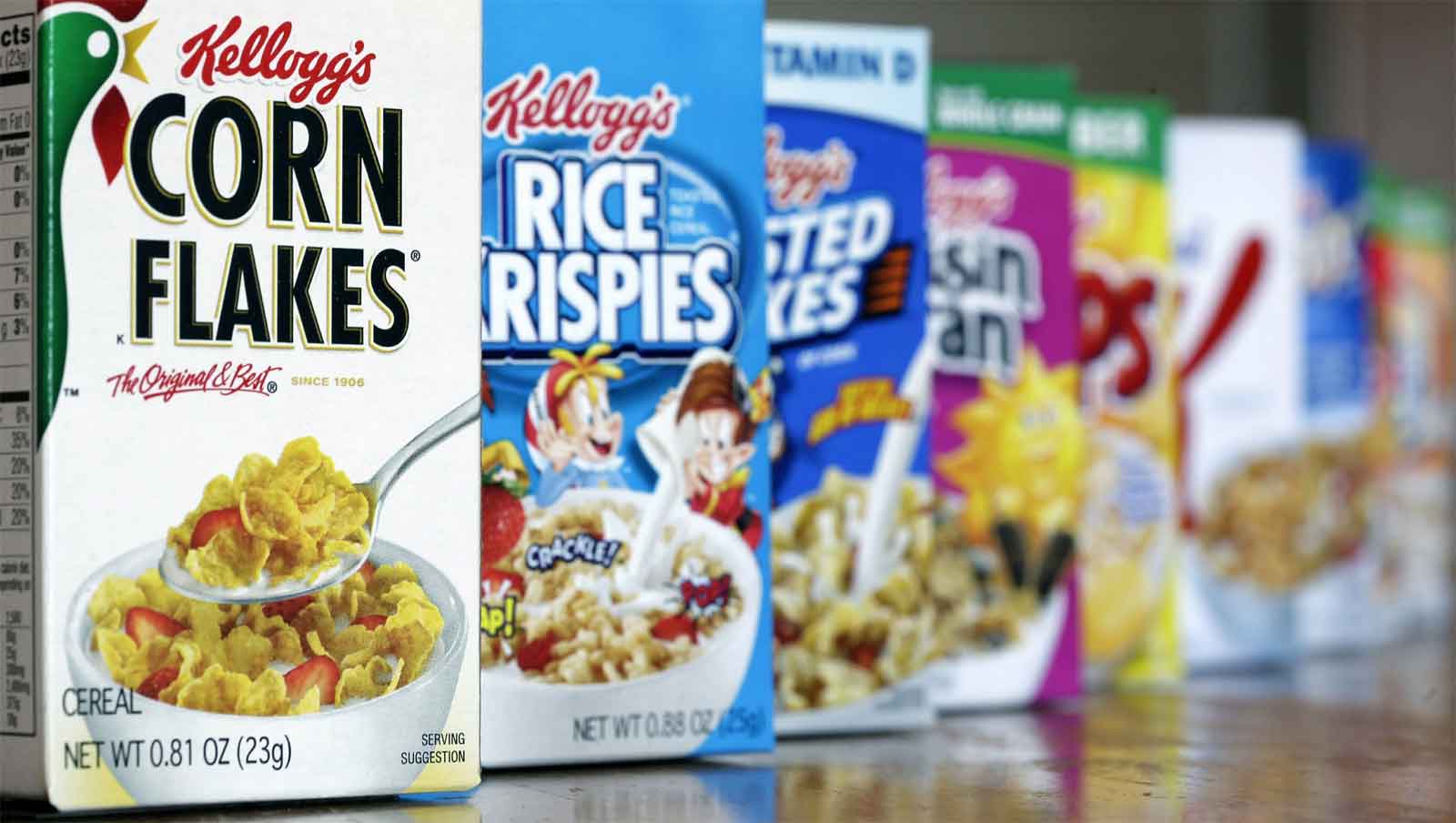| TL/DR: Why is Kellogg splitting up? Although they explain it with lots of corporate-speak, the truth is that sales have been stagnant and the break-up will allow the core company to separate itself from poorer performing business lines and to focus on the growth oriented global snack food category. |
In June, 2022 Kellogg Co. announced plans to split into three independent companies. Kellogg said the largest of the businesses will focus on snack foods while the other two businesses will be based on their cereal brands and plant-based foods, respectively. While unnamed as of June 2022, it’s anticipated that the businesses will be:
A Global Snacking Company. This will consist of the bulk of Kellogg’s brands that account for about $11.4 billion in sales and 80% of the companies $14 billion in revenues (2021). Product lines will include global snacking, international cereal and noodles, and the North America frozen breakfast brands. Popular brands include brands Pringles, Cheez-It and Pop Tarts
The North America Cereal Company – Maker of cereal brands that include Rice Krispies, Frosted Flakes and Froot Loops that accounts for about $2.4 billion* in net sales
Plant Based Food Company – This is primarily the MorningStar Farms brand with about $340 million in sales.
Steve Cahillane, Kellogg Company’s Chairman and CEO, said the split will allow each company to “all have significant standalone potential, and an enhanced focus will enable them to better direct their resources toward their distinct strategic priorities.” According to Cahillane, the spinoffs will result in existing Kellogg shareholders receiving shares in the new companies. Kellogg’s hopes to complete the transactions by the end of 2023, with the cereal spinoff likely to happen first.
What’s Behind the Plan?
In explaining the move Kellogg claims that each business will “have significant standalone potential, and an enhanced focus will enable them to better direct their resources toward their distinct strategic priorities. In turn, each business is expected to create more value for all stakeholders, and each is well positioned to build a new era of innovation and growth.” That sounds like a mouthful of “corporate-speak” which may or may not make sense.
The truth is that Kellogg’s revenues have been struggling to grow for 10 years now, and the company is losing market share in both North America and Europe. The most likely truth is that Kellogg is simply re-organizing so that it can better compete in the global snack food business that is competitive and rapidly changing. The global snack business is growing as people are increasingly eating more often between meals. Kellogg’s chief focus has been in this arena since it acquired the Pringles brand in 2012 for $2.7 billion. This move allows the company to go “all-in” as a pure snack food company that does not have to concern itself with its legacy North American business.
Also consider:
- Cereal brands such as Special K, Froot Loops and Rice Krispies once served as the foundation of Kellogg’s business. However, cereal sales in the U.S. have been slowing down as people eat on the go and reach for more non-cereal options in the morning.
- International is where the growth is as the new snack foods business will also house its international cereal and noodles brands as well as its North America frozen breakfast division. Product lines in the new business account for 80% of Kellogg’s revenues.
- Some analysts believe that the breakup is paving way for the sale of the plant based lines which face stiff competition from a host of players including Danone, Beyond Meat and Impossible Foods.
Long based in Battle Creek, MI, the headquarters of the new snack food company will move to Chicago. The orphan companies (U.S. Cereals and Plant-based foods) will remain in Battle Creek.
The last major split of food producers was in 2012 when Kraft split to create Mondelez. In related news, Mondelez recently it announced it will acquire CLIF Bar & Co., a major energy bar company. Mondelez says that the $2.9 billion deal is expected to close in late 2022.

